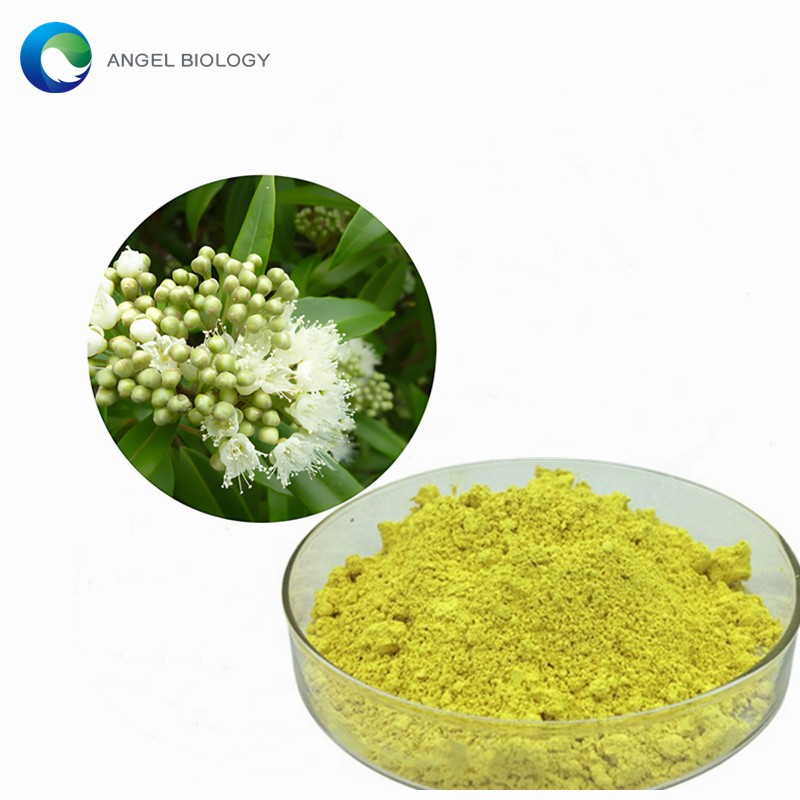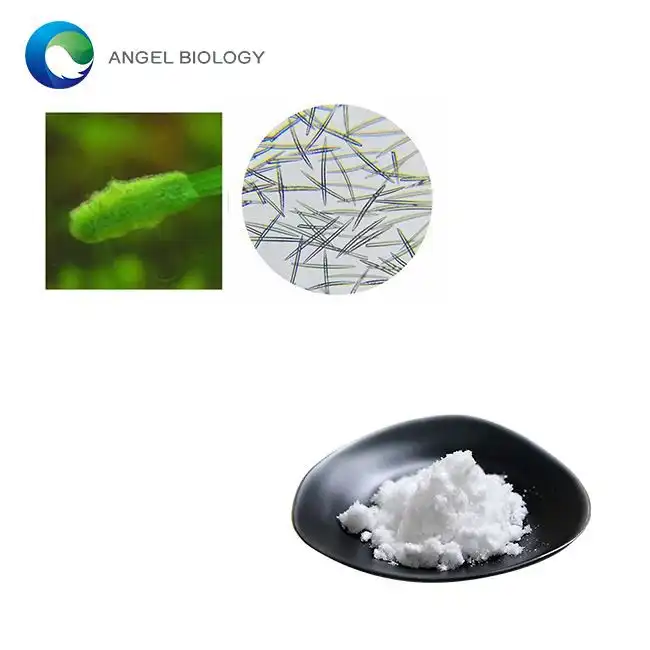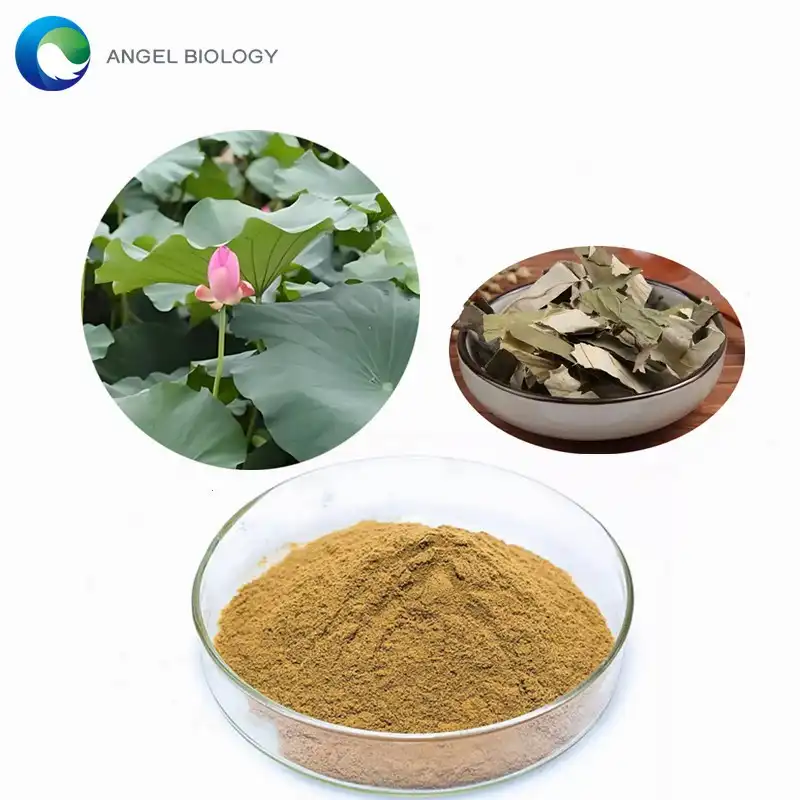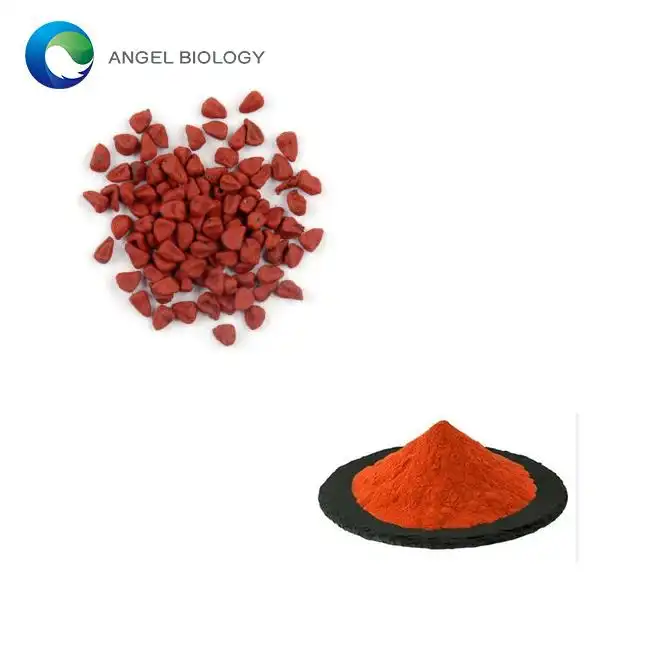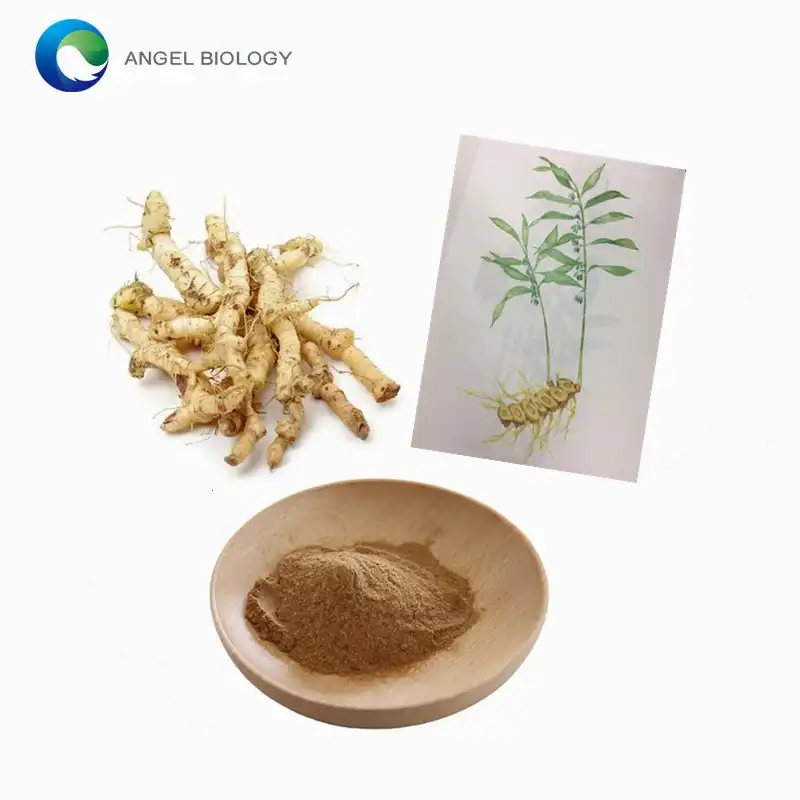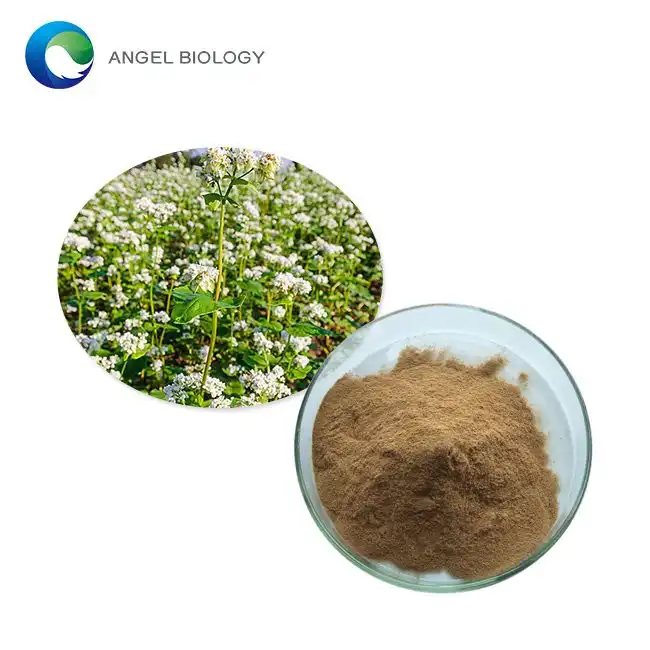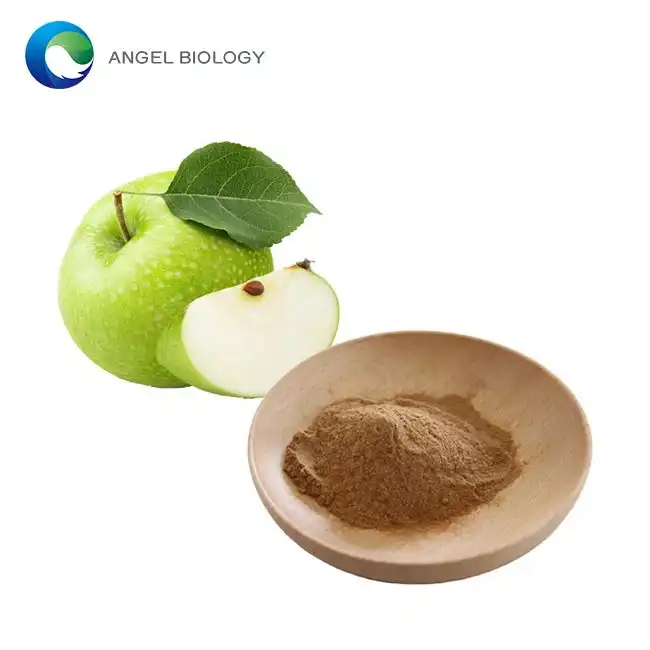Can Taro Powder be Used in Baking?
Taro powder is a versatile ingredient derived from the taro root native to Southeast Asia and the Pacific Islands. It offers a unique flavor profile and natural purple color that can transform ordinary baked goods into visually appealing creations. As interest in natural food colorants and alternative flours grows, many bakers are exploring taro powder's potential in baking recipes.
What are the Benefits of Using Wholesale Taro Powder in Baked Goods?
Nutritional Advantages of Taro Powder in Baking
Taro powder brings significant nutritional benefits to baked goods. Derived from the nutrient-rich taro root, it contains dietary fiber, potassium, calcium, and vitamins E and B. The high fiber content aids digestion and promotes gut health, while its low glycemic index makes it suitable for those monitoring blood sugar levels. Taro contains resistant starch that functions as a prebiotic to support beneficial gut bacteria. Health-conscious bakers can offer products with added nutritional value without compromising taste or texture, appealing to consumers seeking nutrient-dense alternatives to traditional baked goods.
Unique Flavor Profile and Color Enhancement
Taro powder offers a subtle, nutty sweetness with earthy undertones that adds complexity to baked goods. It pairs exceptionally well with coconut, vanilla, and chocolate. Its natural lavender to purple hue transforms ordinary baked goods into visually striking creations without artificial colorants. The intensity of color varies depending on the quality and concentration of the powder, making it important to source from reliable suppliers. The natural coloring ability has made taro powder popular for themed events, holiday baking, and specialty bakeries looking to offer unique products.
Texture and Structure Contributions in Baked Products
Taro powder contains significant starch that functions similarly to other thickening agents. When properly incorporated, it creates a tender crumb in cakes and pleasant chewiness in cookies. For gluten-free baking, partial substitution with taro powder helps maintain moisture retention. The water-absorbing properties contribute to extended shelf life in certain baked goods. High-quality taro powder integrates smoothly into batters and doughs without creating lumps or uneven color distribution. For best results, substitute only 10-30% of conventional flour with taro powder, as complete substitution may cause density issues unless properly balanced with other ingredients.

How Does Wholesale Taro Powder Compare to Other Alternative Flours?
Cost-Effectiveness and Availability Considerations
Taro powder generally costs more than conventional wheat flour or some alternative options like rice or oat flour due to specialized processing requirements and limited global production. However, many professional bakers find this justified by the unique properties it brings to their products, allowing them to charge premium prices. While availability has improved with increased demand, it remains less common than other alternative flours. Seasonal fluctuations in taro harvests can affect both availability and pricing, making reliable supply chains important for commercial baking operations.
Allergy-Friendly Properties and Dietary Compatibility
Taro powder is naturally gluten-free, making it excellent for celiac patients and those with gluten sensitivities. It's typically free from the eight major allergens (milk, eggs, fish, shellfish, tree nuts, peanuts, wheat, and soybean), expanding its potential consumer base. Commercial bakeries have incorporated taro powder specifically for customers with multiple food allergies. It aligns well with paleo and whole food diets due to minimal processing and natural origin. Its low glycemic index makes products potentially suitable for diabetic-friendly baking, though each recipe should be evaluated individually.
Baking Performance and Recipe Adaptability
Taro powder has moderate moisture absorption properties, requiring less liquid adjustment in recipes compared to highly absorbent flours like coconut flour. However, it doesn't provide the same gluten structure as wheat flour. It works exceptionally well in items benefiting from a tender crumb, such as muffins, quick breads, and certain cakes. The powder tends to create a slightly denser texture than all-purpose flour, which works well in brownies or pound cakes but may need adjustments for recipes requiring light, airy textures. Experienced bakers recommend starting with a 20% substitution of conventional flour with taro powder when adapting recipes, gradually increasing based on desired flavor intensity and color.
Where Can You Source Quality Wholesale Taro Powder for Baking?
Evaluating Suppliers and Product Specifications
When seeking quality taro powder, prioritize suppliers who provide detailed information about processing methods. Premium taro powder undergoes controlled drying that preserves color, flavor, and nutritional profile while ensuring food safety. Request specification sheets detailing the powder's fineness (mesh size), moisture content, and color intensity, as these impact baking performance. Reputable suppliers should provide certificates of analysis confirming the absence of contaminants and verifying nutritional content. Consider the taro varieties used, as different cultivars produce powders with varying flavor profiles and starch characteristics. Establishing direct relationships with manufacturers often provides more reliable information about product origin and processing methods.
Storage Requirements and Shelf Life Optimization
Taro powder readily absorbs moisture, which can lead to clumping, color degradation, and potential microbial growth if stored improperly. Store in airtight containers in cool, dry environments below 70°F (21°C). For large operations, vacuum-sealed bags within food-grade buckets provide additional protection against humidity and pests. Properly stored taro powder identify deterioration before it affects production.
Bulk Purchasing Strategies and Cost Management
Plan bulk purchases to align with seasonal taro harvests for better pricing. When negotiating with suppliers, consider tiered pricing structures based on volume commitments. Many suppliers offer discounts for standing orders or long-term contracts, providing price stability for cost projections. Smaller bakeries might form purchasing cooperatives with complementary businesses to meet minimum order requirements while sharing shipping costs. Higher quality taro powder may provide better value through improved yield, more consistent coloration, and better flavor profiles in finished products. For businesses developing signature taro-based items, securing exclusive arrangements with suppliers for custom-processed powder with specific characteristics can create market differentiation.
consider tiered pricing structures based on volume commitments. Many suppliers offer discounts for standing orders or long-term contracts, providing price stability for cost projections. Smaller bakeries might form purchasing cooperatives with complementary businesses to meet minimum order requirements while sharing shipping costs. Higher quality taro powder may provide better value through improved yield, more consistent coloration, and better flavor profiles in finished products. For businesses developing signature taro-based items, securing exclusive arrangements with suppliers for custom-processed powder with specific characteristics can create market differentiation.
Conclusion
Taro powder is a versatile ingredient offering unique flavor, natural color, and nutritional benefits for baking. Whether creating visually stunning purple pastries, developing gluten-free alternatives, or experimenting with new flavors, taro powder provides numerous possibilities for both home and commercial bakers. By understanding proper sourcing, storage, and application techniques, you can successfully incorporate this distinctive ingredient into your baking repertoire, creating memorable products that stand out in today's competitive culinary landscape.
Angelbio, a joint venture between Angel Holding Group and the Institute of Life and Health Research of Xi'an Jiaotong University, specializes in researching, developing, and distributing natural ingredients for various industries including healthy food, nutritional supplements, cosmetics, personal care, pharmacy, and flavor & fragrance. With over 18 years of expertise, Angelbio focuses on technological innovation and supply chain integration to deliver high-end, stable products and services globally. Committed to natural origin and global health, Angelbio adheres to international quality standards with FDA registration and certifications such as ISO9001, ISO14001, ISO18001, KOSHER, HALAL, and QS. Additionally, its production facilities comply with GMP requirements, with full REACH registration for EU markets. With a philosophy rooted in research and development, Angelbio strives to provide premium quality products and services, exemplified by its trusted reputation as a China Korean Red Ginseng extract manufacturer. For inquiries or further information, contact angel@angelbiology.com for dedicated assistance.
References
1. Johnson, M. R., & Smith, P. K. (2023). Functional properties of taro powder in bakery applications. Journal of Food Science and Technology, 60(3), 245-258.
2. Chen, L., Wong, H., & Patel, S. (2022). Comparative analysis of alternative flours for gluten-free baking: Focus on taro powder applications. International Journal of Gastronomy and Food Science, 27, 100418.
3. Ramirez, G., & Thompson, D. (2023). Natural food colorants in modern baking: Taro powder as a sustainable alternative. Food Chemistry, 401, 133984.
4. Williams, K. L., & Davis, J. R. (2022). Nutritional enhancement of baked goods using root vegetable powders: Case study of taro. Journal of Nutrition and Food Sciences, 12(4), 1029-1037.
5. Lee, S. Y., & Park, J. H. (2023). Consumer acceptance and sensory evaluation of purple-colored pastries made with taro powder. Journal of Culinary Science & Technology, 21(2), 175-189.
6. Nguyen, T. H., & Garcia, A. V. (2022). Storage stability and quality attributes of taro powder for commercial applications. Food Packaging and Shelf Life, 31, 100765.



